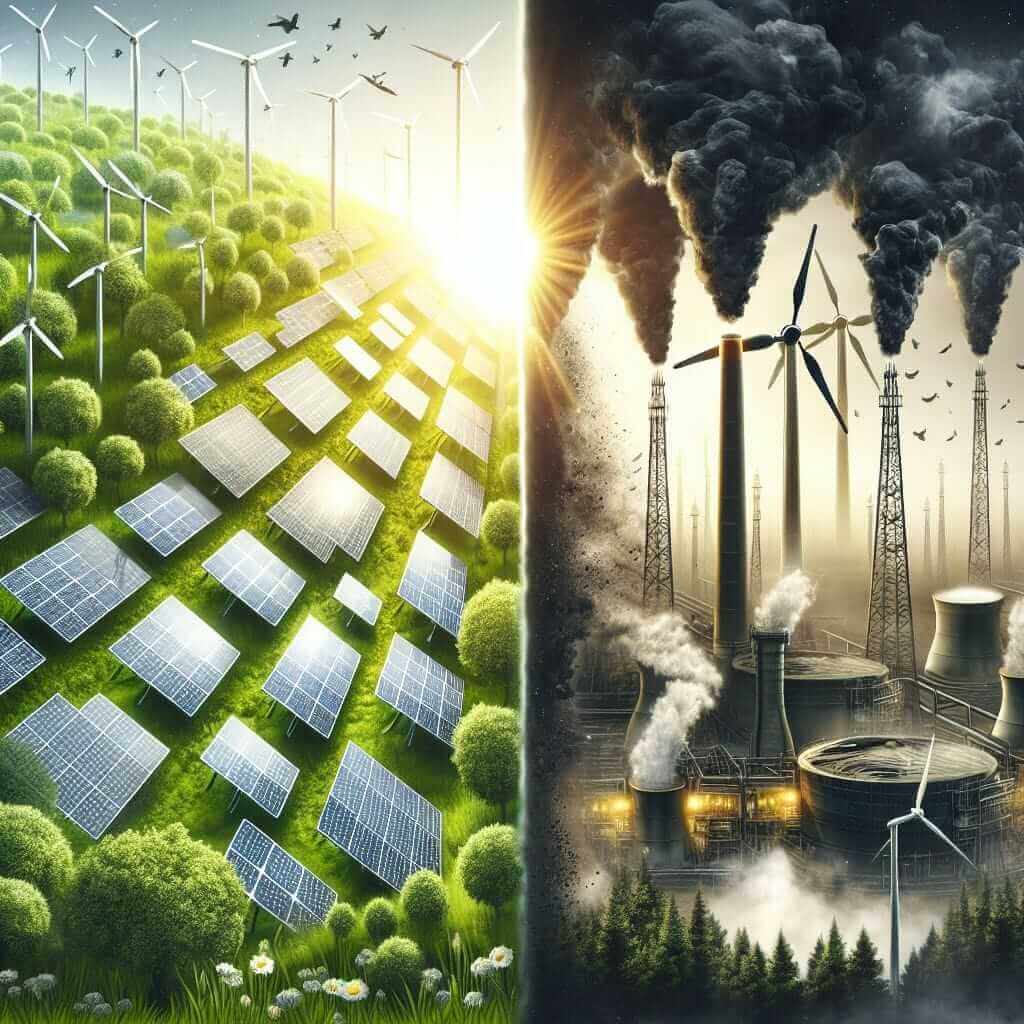The IELTS Reading exam is designed to assess a candidate’s ability to understand written texts, including comprehension of detailed information, identifying writers’ opinions, and grasping overall themes and arguments. Among the myriad of topics, the impact of renewable energy on fossil fuel industries is timely and has appeared multiple times in past IELTS exams due to its global relevance.
Renewable energy is revolutionizing the energy sector globally, offering sustainable alternatives to fossil fuels. This growing trend presents various effects on fossil fuel industries, from economic shifts to policy changes. Given the increasing focus on renewable energy, it is plausible that this topic may recur in future IELTS exams.
Main Content
Sample Reading Passage: Effects of Renewable Energy on Fossil Fuel Industries
Reading Passage (Medium Text)
The global energy landscape is undergoing a seismic shift due to the rise of renewable energy sources. As countries strive to reduce carbon emissions and switch to sustainable energy solutions, the fossil fuel sector faces unprecedented challenges. This transition impacts the fossil fuel industries in diverse ways, including market dynamics, employment shifts, and policy regulations.
One of the significant effects is on market dynamics. The increased adoption of renewable energy, such as wind, solar, and hydroelectric power, has led to a decrease in demand for fossil fuels. This decline has resulted in lowered fossil fuel prices, creating an unstable economic environment for industries reliant on oil, coal, and natural gas.
Additionally, the employment landscape within the energy sector is undergoing a transformation. While jobs in the renewable energy sector are on the rise, those in fossil fuel industries are facing a decline. This shift necessitates retraining and reskilling of the workforce to adapt to new technologies and job roles, which poses a substantial challenge for economies heavily dependent on fossil fuels.
Policy and regulatory changes are another critical aspect. Governments worldwide are incorporating stringent environmental regulations and incentives to promote renewable energy investment. These policies often impose taxes or limits on carbon emissions, which directly affect fossil fuel industries by increasing operational costs. Consequently, fossil fuel companies are compelled to innovate and invest in cleaner technologies or risk obsolescence.
In conclusion, the rise of renewable energy significantly impacts the fossil fuel sector through market shifts, workforce changes, and policy developments. As the world continues to pivot towards greener energy solutions, fossil fuel industries must navigate these challenges and adapt to the evolving energy landscape.

Questions
-
Which of the following is NOT mentioned as an impact of renewable energy on fossil fuel industries?
- A) Market dynamics
- B) Employment shifts
- C) Educational advancements
- D) Policy regulations
-
According to the passage, what has led to the decrease in demand for fossil fuels?
- A) The collapse of international oil markets
- B) The advent of renewable energy sources
- C) A global economic recession
- D) The discovery of new fossil fuel reserves
-
True/False/Not Given: Governments are removing taxes on fossil fuels to support the industry.
-
According to the passage, what must fossil fuel companies do to remain relevant?
- A) Expand their fossil fuel extraction activities
- B) Invest in cleaner technologies
- C) Lobby for the removal of environmental regulations
- D) Reduce operational costs significantly
Answer Key
- C) Educational advancements. Explanation: The passage does not discuss educational advancements as an impact on fossil fuel industries.
- B) The advent of renewable energy sources. Explanation: The passage explicitly mentions that the rise of renewable energy has decreased the demand for fossil fuels.
- False. Explanation: The passage states that governments are imposing taxes or limits on carbon emissions, not removing them.
- B) Invest in cleaner technologies. Explanation: The passage suggests fossil fuel companies must innovate and invest in cleaner technologies to adapt.
Lessons Learned
Common mistakes in such reading passages include:
- Misinterpreting the context when identifying whether statements are True, False, or Not Given.
- Overlooking specific details that distinguish one answer option from others.
- Failing to grasp the overall theme, leading to incorrect conclusions.
Vocabulary
- Seismic: (adjective) /ˈsaɪzmɪk/ – relating to or denoting an earthquake or other vibration of the earth.
- Dynamic: (noun) /daɪˈnæmɪk/ – a force or factor that shapes a situation or activity.
- Incentive: (noun) /ɪnˈsentɪv/ – a thing that motivates or encourages someone to do something.
- Obsolescence: (noun) /ˌɒb.səˈlɛs.əns/ – the process of becoming outdated or no longer used.
Grammar Focus
Relative Clauses:
Relative clauses provide additional information about a noun. In this passage, you see relative clauses such as “which poses a substantial challenge” and “that shape a situation.”
Example:
- Fossil fuel industries, which have dominated the energy sector for decades, are now facing significant challenges.
- Renewable energy sources that include wind, solar, and hydroelectric power are increasingly popular.
Tips for High Reading Scores
- Practice Regularly: Engage in daily reading practices with various academic articles, news, and IELTS practice tests.
- Enhance Vocabulary: Expand your lexical resource by learning new words, particularly those frequently encountered in academic texts.
- Understand Question Types: Familiarize yourself with different question formats used in the IELTS Reading exam.
- Manage Time Efficiently: Practice under timed conditions to improve speed and accuracy.
- Critical Reading: Develop skills in skimming and scanning texts to identify key information quickly.